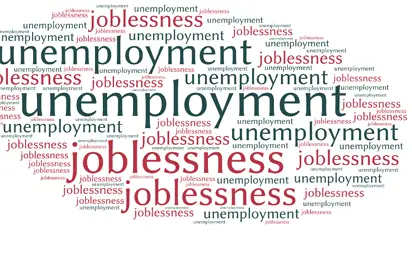
The United Nations on Wednesday said the global unemployment rate would increase slightly in 2024.
It said an extra two million workers are expected to be looking for jobs in 2024, raising the global unemployment rate to 5.2 per cent.
The UN, through its labour arm, International Labour Organisation, also raised concerns about stagnant productivity, worsening inequalities and inflation biting into disposable income.
This was contained in its World Employment and Social Outlook Trends report for 2024 released on Wednesday by the UN.
It added that disposable incomes have declined in the majority of G20 countries and, generally, the erosion of living standards resulting from inflation is “unlikely to be compensated quickly”.
“Furthermore, important differences persist between higher and lower-income countries. While the jobs gap rate in 2023 was 8.2 per cent in high-income countries, it stood at 20.5 per cent in the low-income group.
“Similarly, while the 2023 unemployment rate persisted at 4.5 per cent in high-income countries, it was 5.7 per cent in low-income countries.
“Moreover, working poverty is likely to persist. Despite quickly declining after 2020, the number of workers living in extreme poverty (earning less than US$2.15 per person per day in purchasing power parity terms) grew by about 1 million in 2023. the number of workers living in moderate poverty (earning less than US$3.65 per day per person in PPP terms) increased by 8.4 million in 2023.”
The study assesses the latest labour market trends, including unemployment, job creation, labour force participation and hours worked – then links those to their social outcomes.
Reacting to the report, ILO Chief, Gilbert Houngbo, said the report found that some of the data, notably on growth and unemployment, are “encouraging”.
“A deeper analysis reveals that labour market imbalances are growing and that, in the context of multiple and interacting global crises, this is eroding progress towards greater social justice,” Houngbo said.
“What is clear from this report is that the problems we face are too large and complex for any one
group, country or region to solve alone. The policies and actions chosen need to be coordinated
and mutually reinforcing, at both country and multilateral levels. What’s more, this coordination
needs to extend to the allocation of financial and technological resources.
“A more effectively coordinated response will also help to put us on track to achieve both the UN Sustainable Development Goals and the commitments made at COP28 – which, encouragingly
and for the first time, included reference to the importance of labour rights, social dialogue, social protection and decent work in achieving the just transition we all need,” he added.
Source | Punchng










